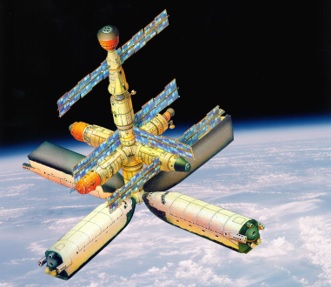Special to CosmicTribune.com, February 20, 2024
By Richard Fisher
Last week, the Biden Administration sparked a crisis by warning without openly/publicly explaining that Russia was close to placing nuclear weapons in space, but then damaged its credibility as leader of the free world by trying to walk back the same threat.
This crisis emerged in a period in which the Biden Administration was struggling to exercise the leadership needed to convince the House of Representatives to approve additional military aid for Ukraine.
In a story that evolved over a three-day news cycle (Feb. 14, 15 and 16), the Biden Administration briefed Congress on a new Russian space threat, with Republicans countering on Feb. 14 by publicly demanding that the Administration declassify data and explain the threat — which has yet to happen.

This “crisis” began the previous week in reaction to his being briefed on the Russian space threat, President Joe Biden decided that National Security Advisor Jake Sullivan should brief senior Members of Congress.
But by Feb. 14 the House Select Committee on Intelligence had voted to brief all members on the new threat, with Chairman Michael R. Turner (R-OH) issuing a statement:
“I am requesting that President Biden declassify all information relating to this threat so that the Congress, the Administration and our allies can openly discuss the actions necessary to respond to this threat.”
But the Administration started to lose control of the crisis “narrative” by relying on unnamed sources to explain the threat, so they would not be accused of revealing classified information, but instead undermined their credibility by not being able to explain this threat fully and convincingly.
“The Russian government has experimented with the use of nuclear explosions or directed energy to disable satellites, according to one U.S. official, who, like others, spoke on the condition of anonymity to discuss sensitive information,” reported the Washington Post on Feb. 14.
Then on Feb. 15 the Washington Post also reported, “The capability is a nuclear-armed — not a nuclear-powered — weapon, said two U.S. officials, who like others familiar with the intelligence spoke on the condition of anonymity to discuss sensitive information.”
With suggestions like these, the logical suggestion was that Russia has resorted to developing some kind of Electromagnetic Pulse (EMP) weapon that uses a nuclear explosion to create a very intense burst of radiation that can damage or destroy electronic microcircuits for thousands of miles, to include those used by satellites in space.
For decades there have been warnings that Russia or China could use EMP weapons detonated in Low Earth Orbit over the United States to disable U.S. electronic infrastructure from cell phones to automobiles, the internet and the digitally driven financial system.
In addition, such an EMP attack would hobble the U.S. ability to respond to a major Russian or Chinese nuclear attack or major conventional strike in Europe or Asia.
Full Text . . . . Current Edition . . . . Subscription Information

You must be logged in to post a comment Login